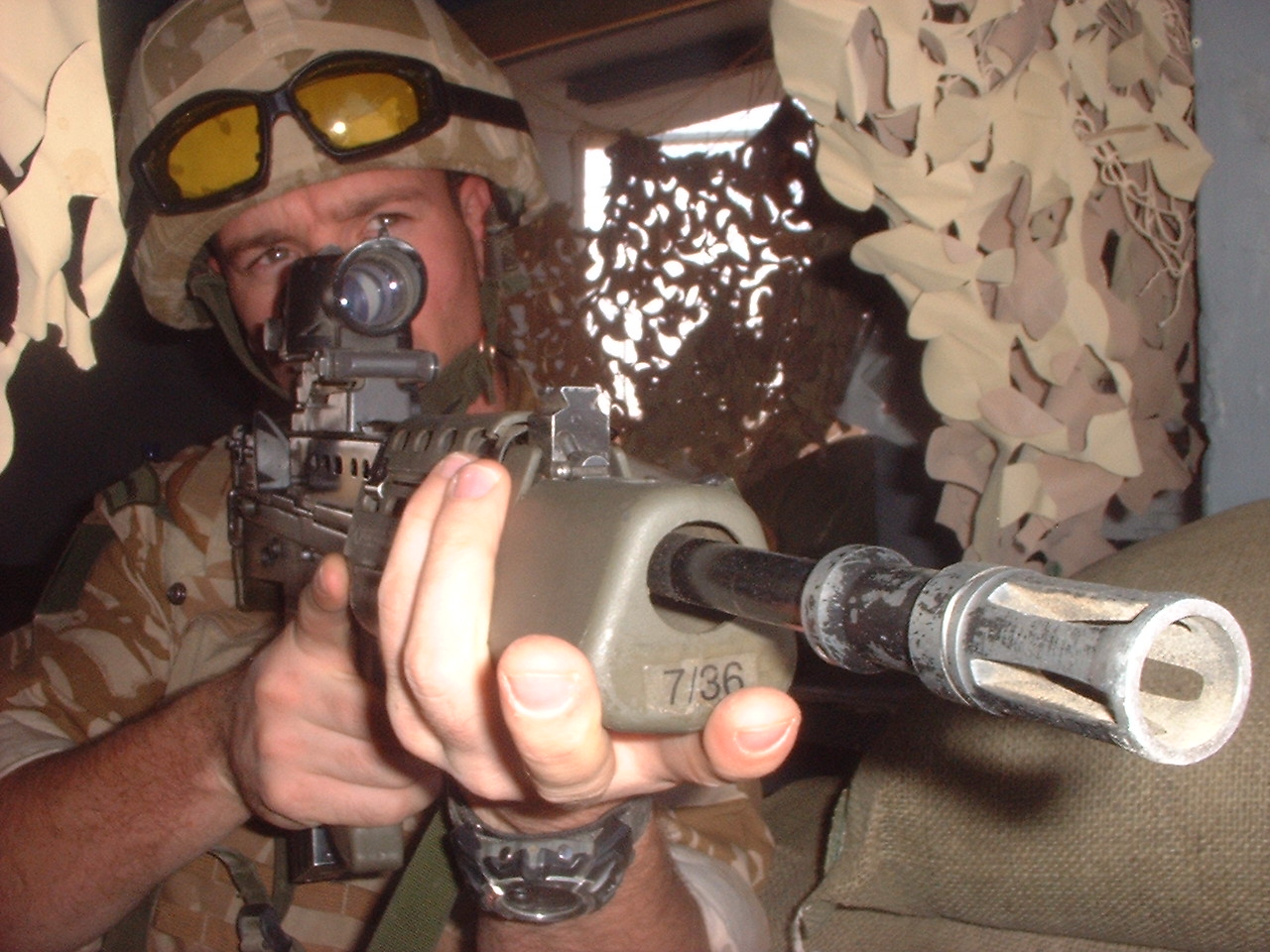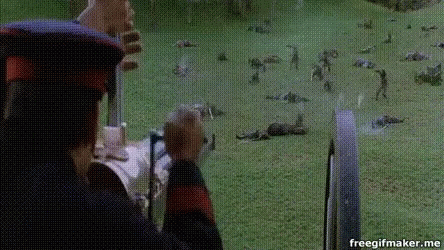How to Become A Master At Overcoming Hard Moments

In his 2024 Dartmouth Commencement Speech, tennis legend Roger Federer said that champions have learnt how to become a master at overcoming hard moments:
“Perfection is impossible. In the 1526 singles matches I played in my
career, I won almost 80% of those matches. Now, I have a question for
you.
What percentage of points do you think I won in those matches? Only 54%.
In
other words, even top-ranked tennis players win barely more than half
of the points they play. When you lose every second point on average,
you learn not to dwell on every shot.
You teach yourself to
think, okay, I double-faulted ... it's only a point. Okay, I came to the
net, then I got passed again; it's only a point. Even a great shot, an
overhead backhand smash that ends up on ESPN's top 10 playlist. That,
too, is just a point.
And here's why I'm telling you this. When
you're playing a point, it has to be the most important thing in the
world, and it is. But when it's behind you, it's behind you.
This mindset is really crucial because it frees you to fully commit to the next point and the next point after that, with intensity, clarity, and focus."
How to Become A Master At Overcoming Hard Moments - Key Steps
Peak performance is meditation in motion
This anecdote about Roger Federer has got a lot of coverage in social media and deservedly so. I am not very interested in tennis, but I have always taken great pleasure in watching him play in major tournaments.
There was a zen-like quality to his playing. His peak performance was meditation in motion.
But in common with each of the top players he had a remarkable capacity to focus on the shot in play and to put everything into that shot.
Then, regardless of the outcome of that shot, he put it behind him and played the next shot as if his life depended on it. As he said:
"The best in the world are not the best because they win every point. It's because they lose again and again and have learned how to deal with it."
Contexts
There are two contexts in which this can apply:
- Task Specific - this is what Federer was talking about. In his case this was hitting a tennis ball over a net, but it could be about how to overcome hard moments when undertaking any regular and familiar task [or set of tasks].
- Situation Specific - this is the broader application of the same principle. This is about how to become a master at overcoming hard moments in challenging circumstances.
Task Specific Hard Moments
The foundation to this is a measure of control over your mind
To perform at a high level, you must diligently and consistently, focus on being present.
This is not a state you can just “turn on,” if you aren’t practicing it.
Your everyday life must reinforce how you hope to perform at the highest level.
“The secret is that everything is always on the line. The more present we are at practice, the more present we will be in competition, in the boardroom, at the exam, the operating table, the big stage.
If we have any hope of attaining excellence, let alone of showing what we’ve got under pressure, we have to be prepared by a lifestyle of reinforcement. Presence must be like breathing.” [Josh Waitzkin]
To become a master at overcoming hard moments when dealing with specific tasks in your working life and in your personal life you need to learn these 3 basic skills:
[1] Drop The Story
As Federer said, even the best players lose nearly half of their shots, it's just a fact of life so you need to get used to failure. Succeeding or failing at a task has no intrinsic meaning other than that which you choose to give it.
- You have an automatic hardwired tendency to tell yourself stories.
- This means that you need to over-ride the voice in your head that will dramatise, or catastrophise, a failure.
- How you mentally characterize a situation has a profound impact on how you respond to it emotionally.
- You can choose to frame it in a way that is positive. It is always a choice. To be able to do it in the moment requires preparation.
- Firstly change your self talk and secondly re-frame your emotional associations with failure.
Train yourself to drop the story.
Example:
Early in my business career when I was a salesman I had to do a lot of cold calling to find new customers. The process of cold calling involves a lot of failure.
I trained myself to see every rejection as one step nearer a new customer. My average order value back then was $10,000 and it took approximately 50 cold calls to land a new client so I trained myself to see each cold call as earning me $200.
[2] Focus On Process, Rather Than Outcome
We
have an inbuilt, hardwired tendency to automatically attach to our
desired outcome which adds heavily to the weight of expectation.
We need to learn how to practice non-attachment by consciously setting aside our preferred outcome or goal - or indeed any outcome or goal - and just focusing on the processes involved in the task in hand.
A focus on process rather than outcome leads to better performance.
Learn how to practice non-attached mind
Example:
In business when I have an important meeting with a lot at stake, I have trained myself so that I just treat it as "just another meeting", and focus totally on the meeting itself, and put the outcome out of my mind.
[3] Have A Focused Mind Of Relaxed Alertness
- The focused mindset is unstressed yet constantly aware of your body, mind, and surroundings.
- The focused mindset is about choosing to act intentionally and with purpose.
- It is not the target that matters.
- It is not the finish line that matters.
- How you approach your goal is what determines the outcome.
- Aiming is everything.
- It is irrelevant if you are winning or if you are losing. It is irrelevant if you are starting or near the end.
Stay focused regardless of what has happened so far.
Example:
In archery, if you put intensity, focus and sincerity into the process—where you place our feet, how you hold the bow, how you breathe during the release of the arrow - then hitting the bullseye is simply a side effect.
As James Clear puts it:
"The point is not to worry about hitting the target. The point is to fall in love with the boredom of doing the work and embrace each piece of the process. The point is to take that moment of complete awareness and focus, and carry it with you everywhere in life."
Situation Specific Hard Moments
Overcoming hard moments in difficult situations requires a combination of mental resilience, practical strategies, and emotional intelligence.
Are you in a mess and having a really tough time right now?
These are the steps, with the necessary components and resources, to help you become a master at overcoming hard moments in these difficult situations:
1. Build Mental Resilience
- Focus on what you can control and maintain a positive outlook.
- Understand your emotions and how you react to stress.
- Release the grip of your emotions by practicing deep acceptance.
- View obstacles as opportunities for growth.
- Practice gratitude especially in tough situations.
2. Embrace Your Fear Of Failure And Uncertainty
Fear of failure is deeply embedded in our minds. To a large extent it's a cultural thing.
The personal development and self-help world is steeped in case studies and analysis of success.
But what the self help gurus tell you is a partial truth masquerading as the whole truth.
Success is the exception rather than the rule.
Every scientific discovery, every new invention, every great innovation, every new idea of substance is the product of innumerable failures.
3. Develop Your Thinking Skills
Focus on how not what to think.
Develop critical thinking so that you can deliberately and systematically process information and make better decisions.
Adopt a strategic mindset that is focused on the most efficient thinking process to achieve a result.
Think about thinking - know how to apply the most appropriate cognitive processes to the task in hand.
Understand and learn mental models.
Further Reading:
How To Practise Mindfulness - Drop The Cushion, Focus Your Mind On NOW
5 Zen Mindsets For Mastery - In Any Area Of Your Life
The Confident Mind - 4 Keys To Peak Performance
Next Article:
Drop The Story - How To Deal With Your Demons and Transform Your Life
Return from: "Overcoming Hard Moments" to: Walking The Talk
LATEST ARTICLES
Does Prayer Work? The Psychology of Prayer, Meditation and Outcomes
 Reality Is A Complex System Of Countless Interactions - Including Yours. So does prayer work? The problem is that the question itself is usually framed in a way that guarantees confusion. We tend to a…
Reality Is A Complex System Of Countless Interactions - Including Yours. So does prayer work? The problem is that the question itself is usually framed in a way that guarantees confusion. We tend to a…Living in Survival Mode Without Surrendering Mental Authority
Living in Survival Mode Without Surrendering Mental Authority
 Clear Thinking When You’re Just Trying to Stay Afloat. Many people today are overwhelmed because they are living in survival mode - not temporarily, but as a persistent condition of life. For many, th…
Clear Thinking When You’re Just Trying to Stay Afloat. Many people today are overwhelmed because they are living in survival mode - not temporarily, but as a persistent condition of life. For many, th…Manifestation Without Magic: A Practical Model
 Manifestation without magic is not a softer or more intellectual version of popular manifestation culture. It is a different model altogether. Popular manifestation teachings tend to frame reality as…
Manifestation without magic is not a softer or more intellectual version of popular manifestation culture. It is a different model altogether. Popular manifestation teachings tend to frame reality as…Staying Committed When You Can't See Progress - The Psychology of Grit
 Uncertainty Is Not The Absence Of Progress, Only The Absence Of Reassurance. One of the most destabilising experiences in modern life is not failure, but uncertainty and staying committed when you can…
Uncertainty Is Not The Absence Of Progress, Only The Absence Of Reassurance. One of the most destabilising experiences in modern life is not failure, but uncertainty and staying committed when you can…The Battle For Your Mind - How To Win Inner Freedom In A Digital Age Of Distraction
 From External Events to Inner Events. We often think of “events” as things that happen out there: the traffic jam, the rude comment, the delayed email reply. But what truly shapes our experience is wh…
From External Events to Inner Events. We often think of “events” as things that happen out there: the traffic jam, the rude comment, the delayed email reply. But what truly shapes our experience is wh…How to See Your Thoughts Without Becoming the Story
 A Practical Guide to Thought-Awareness. You can spend your life inside the stories of your mind without ever learning how to see your thoughts clearly and objectively. Most of the stuff we tell oursel…
A Practical Guide to Thought-Awareness. You can spend your life inside the stories of your mind without ever learning how to see your thoughts clearly and objectively. Most of the stuff we tell oursel…The Collison Decision Matrix - A Simple Framework for Better Choices
 The Collison Decision Matrix Is A Practical Everyday Thinking Tool. Most of us spend a surprising amount of time worrying about decisions. From small ones such as what to wear, what to eat, what to te…
The Collison Decision Matrix Is A Practical Everyday Thinking Tool. Most of us spend a surprising amount of time worrying about decisions. From small ones such as what to wear, what to eat, what to te…The Power Of Asking The Right Question
 The Power Of Asking The Right Question Lies In The Quest For Insight. To experience the power of asking the right question you must develop the practice of asking questions. The best way to improve th…
The Power Of Asking The Right Question Lies In The Quest For Insight. To experience the power of asking the right question you must develop the practice of asking questions. The best way to improve th…Site Pathways
 Here is a site pathway to help new readers of Zen-Tools navigate the material on this site. Each pathway is based around one of the many key themes covered on this site and contain a 150 word introduc…
Here is a site pathway to help new readers of Zen-Tools navigate the material on this site. Each pathway is based around one of the many key themes covered on this site and contain a 150 word introduc…How To Live With Contradiction - Beyond Thought Let Stillness Speak
 A major impact on so many peoples' lives is the situational contradiction of unfilled realistic expectations. So where does all this leave us? Well here we are, with mental equipment that is more lim…
A major impact on so many peoples' lives is the situational contradiction of unfilled realistic expectations. So where does all this leave us? Well here we are, with mental equipment that is more lim…How To Trust The Process Of Mindfulness - Right Now
 In mindfulness, the process isn’t some distant goal — it's what is happening right now. When we talk about how to trust the process of mindfulness the credibility of the process is heavily dependent…
In mindfulness, the process isn’t some distant goal — it's what is happening right now. When we talk about how to trust the process of mindfulness the credibility of the process is heavily dependent…




